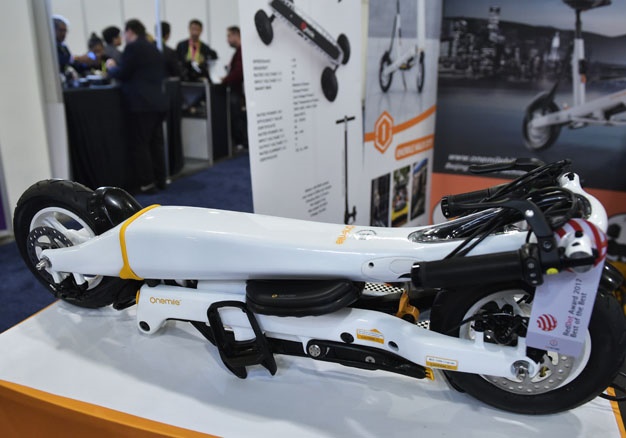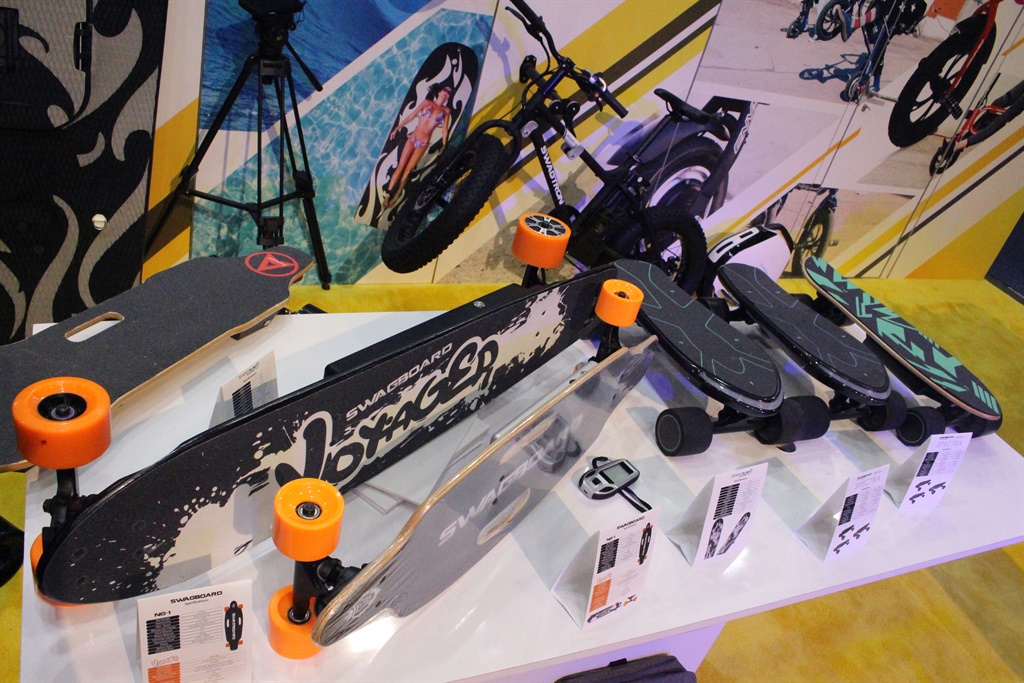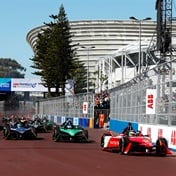
Las Vegas - Carless commuting is cruising in the fast lane at the Consumer Electronics Show, with companies showing off electric bicycles, scooters, skateboards and more aimed at making the internal combustion engine a thing of the past.
As the ranks of people around the world living in cities has grown, so too has the cost of car ownership as well as traffic congestion.
Nowhere was this more apparent than at the annual tech gathering in Las Vegas where some 170 000 conference goers jammed the streets.
Tech analyst Jack Gold of J. Gold Associates said: "In a lot of big cities, cars aren't tenable anymore."
An AFP reporter testing the car-free concept through the week at CES by relying on a freshly released GenZe electric bicycle consistently sailed past clogged traffic near the convention center and on the famed Las Vegas Strip.
Riders too tired or lazy to pedal meanwhile can twist a throttle to glide along at close to local street speed limits.
GenZe spokesman Tom Valasek, a former auto industry marketing executive, said that several car makers had come to check out the company's CES exhibit.
Valasek told AFP: "There is a lot of curiosity right now about where things are heading.
"I know a lot of people in the auto industry who are quite worried that car ownership is going away."
The popularity of smartphone-summoned rides from services such as Uber and Lyft are playing into the trend, with technology giants investing heavily in self-driving capabilities that could soon see automated vehicles available on-demand.
Lyft chief executive John Zimmer said at a CES dinner event: "We believe car ownership makes no sense in the future."
Zimmer doubted that his daughter, now a young child, will want to own a car when she is of age. Instead, he said: "She'll want access to transportation."
A boom of autonomous cars would likely prompt vehicles to evolve to be more akin to rooms on wheels: sleeper cabins in trains, or private offices, Zimmer added.
A shift away from owning and relying on cars was also expected to result in traffic and parking becoming less of a priority in urban design.
GenZe, a US-based division of the Mahindra Group in India, this week announced its e-bikes will be added in April to a Ford GoBike ride-share program in San Francisco.
The e-bikes should "help to make San Francisco more livable and reduce congestion," Metropolitan Transportation Commission deputy executive Alix Bockelman said in a release.
Leading online social network Facebook has a fleet of 100 GenZe bikes for employees to get around its Silicon Valley campus, and they are also used by delivery services DoorDash and Postmates, according to Valasek.
Despite negative publicity about hoverboards a few years ago - centered on their tendency to explode - the manufacturer Swagtron was at CES with some of those devices along with skateboards and bicycles boosted with electric motors.
Swagtron chief operating officer Andrew Koven told AFP: "We are seeing with personal mobility that some people like to skate; some people like to scoot, and some people like to ride."
Koven saw alternatives to cars as an "absolute necessity" that was part of a "systemic shift" toward getting around in ways that are economical as well as socially and environmentally responsible.
"If I am commuting a short distance to work, do I really need a car?" analyst Gold asked rhetorically.
Cities are already eyeing autonomous shuttle services.
A self-driving electric shuttle built by Navya was introduced here last year in a test that segued into a program providing rides on a route in downtown Las Vegas.
Swiss-based Rinspeed also showed its autonomous shuttle, and Toyota introduced a boxy concept vehicle which could be used for ridesharing, deliveries, medical services or as an extension of retail stores.
Plenty of new cars were shown at CES including a number of self-driving models. But some attendees said that the vehicle of the future may be something different.
Ankit Jain said automakers "have been building cars from the driver's perspective," head of the Ola Play software platform for the India-based rideshare group.
In future vehicles which may be autonomous, "the passenger is the one paying," Jain said. "You have to fundamentally rethink the car."




 Publications
Publications
 Partners
Partners












